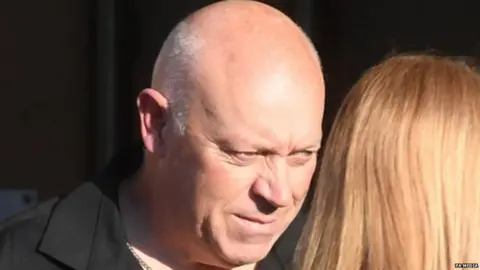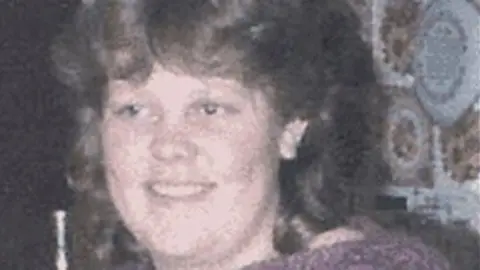Andrew Griggs murder trial: Wife 'suffered post-natal depression'
 PA Media
PA MediaA man accused of murdering his wife 20 years ago has told a jury that she had repeatedly threatened to walk out on their children and kill herself.
Andrew Griggs denies killing Debbie Griggs, who disappeared from their home in Deal, Kent, in May 1999.
Mr Griggs, 57, told Canterbury Crown Court that his wife experienced post-natal depression and "dark moods" after the birth of their three sons.
He was accused of "trying to blacken" Mrs Griggs's name by the prosecution.
The court heard how the 34-year-old - whose body has never been found - became "withdrawn, quiet and very down on herself" after giving birth.
Mr Griggs said: "Her whole personality had changed. She had no patience. She was very angry at times with the children.
"It was very stressful for both of us. She was angry with me."

She had repeatedly threatened to walk out and on more than one occasion had told their children "I might as well go and kill myself," he said.
He said his wife had been "slightly heavy handed" with their three sons, adding: "She was very aggressive with them if they were naughty."
He did not follow her strict approach to discipline because he is "a bit of a softie," he said.
Mr Griggs, of St Leonards, in Dorset, told the jury he had never hit or threatened his wife.
'Gearing up legally'
The couple had separated in March 1999 and Mr Griggs moved out of the family home, the court heard.
He had been "gearing up legally" to file for divorce, but stopped proceedings when the couple reconciled, jurors were told.
Asked why he did not pursue a divorce, Mr Griggs said: "I didn't want to, because I still loved Debbie and the children and I just didn't want to lose her."
But Duncan Atkinson QC, prosecuting, accused Mr Griggs of "seeking to blacken Debbie's name".
When interviewed by police the defendant had claimed his wife went "walkabout" in the middle of night between 30 and 40 times, the court heard.
Mr Atkinson said the accused had not mentioned this before she went missing.
"You were seeking to create an impression after she had gone that this was something she did a lot," the barrister said.
"No I was not," Mr Griggs replied.
The trial continues.

Follow BBC South East on Facebook, on Twitter, and on Instagram. Send your story ideas to [email protected].
